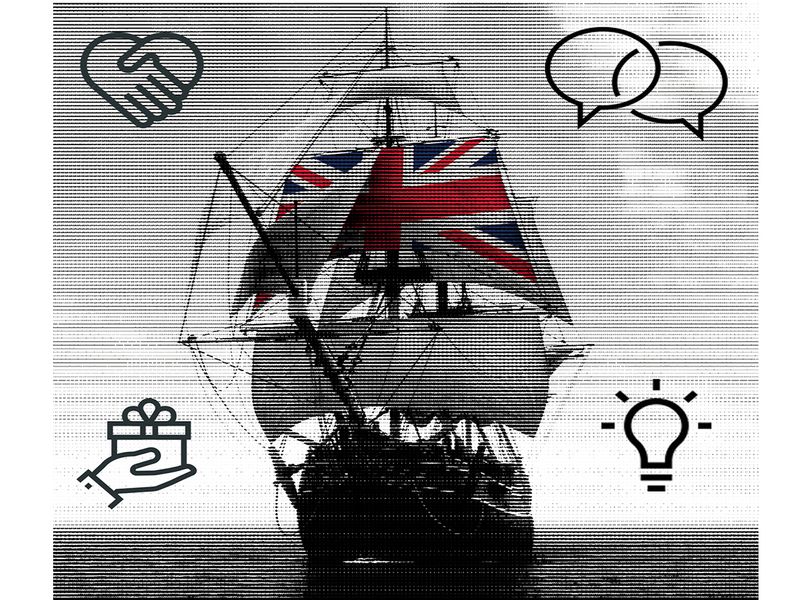Happy second anniversary. And how is Brexit working for you so far? Yes, it was two years ago on New Year’s Day that the United Kingdom formally ended its 46 years of membership of the European Union and divorced itself from all things European. Except their footballers who can make it to the English Premier League, of course.
In the same week as very muted — no, scratch that — silent commemorations on Brexit taking effect, Brits were very more focused on making ends meet, choosing between heating or eating, trying to figure out how they would get into the UK or across it, or simply stay well to avoid the need for ambulances of hospitals — all at a time of unprecedented instability across the four nations.

This winter of content is a dangerous time. Train service is disrupted by intermittent strikes by the various trade unions involved in most aspects of making the railways work. And, for good measure, commuters will be paying at least 5 per cent more for fewer trains on timetables that are part fact and often fictional.
On Christmas Day at 3pm, some 10 million Brits tuned into the King’s speech — the first time Charles has addressed the nation on Dec. 25. Previously, his mother, the late Queen Elizabeth was the only monarch to have delivered the televised address to her people.
King Charles’ offered sympathy to those “struggling with great anxiety and hardship”.
Praising individuals, charities and faith groups supporting those in need, Charles said he wanted to pay tribute “to all those wonderfully kind people who so generously give food or donations, or that most precious commodity of all — their time — to support those around them in greatest need.”
“At this time of great anxiety and hardship — be it for those around the world facing conflict, famine or natural disaster, or for those at home finding ways to pay their bills and keep their families fed and warm we see it in the humanity of people throughout our nations,” he added.
Two years since Brexit
It’s been two years since former Prime Minister Boris Johnson signed his Brexit trade deal, supposedly offering the promise of unbridled trade deals and economic opportunities outside the EU and its common market of some 500 million consumers.
In reality, the UK economy is hamstrung by Brexit, and the UK remains the only member of the G7 — the group of advanced economies that also includes Canada, France, Germany, Italy, Japan and the United States — with an economy smaller than it was before the pandemic.
The pound has taken a beating, making imports more expensive and stoking inflation while failing to boost exports, even as other parts of the world have enjoyed a post-pandemic trade boom.
With the events unfolding in Ukraine and causing a sudden hike in energy prices, that weak pound means spending more in dollar terms to buy oil and gas on the open market.
And Brexit has erected trade barriers for UK businesses and foreign companies that used Britain as a European base.
Brexit, for many, is turning into Bregret
There are fewer workers, fewer choices, fewer opportunities, and less money to go around — all at a time when government borrowing has increased. In December, the UK government spent £40 billion servicing its borrowing — for every £1 in circulation in its shrinking economy, about 90 pence more is owed. And that means less money to fund ambulances, hospitals or other parts of the critical infrastructure that is creaking from too little investment in recent decades.
For travellers returning to Britain this holiday season, striking Border Force staff meant passports were checked by members of the UK Armed Forces. How does that stack up to the promise that Brexit would allow the UK to take back control of its borders?
Indeed, Brexit is weighing heavily on imports and exports, sapping investment and contributing to labour shortages — factors that together are exacerbating the UK’s rate of inflation. And inflation is stoking more labour unrest as workers, particularly those in the public sector, seek pay increases to keep pace with the higher cost of living.
It’s a vicious circle, and Brexit is a critical factor. Yes, other European nations are fighting with rising costs and inflation and the lingering effects of the pandemic — but at least they can trade freely with each other.
This winter of discontent, a sense of wintry and dark economic gloom, is underscored by the sheer numbers of workers off the job — not seen in the UK in the decades starting in the mid-1970s.
While Brexit isn’t the only cause of Britain’s cost of living crisis, it certainly has made it more difficult to deal with. There is no pool of go-to cheap labour to try and offset prices or at least break the inflationary circle.
Source : Gulf News


